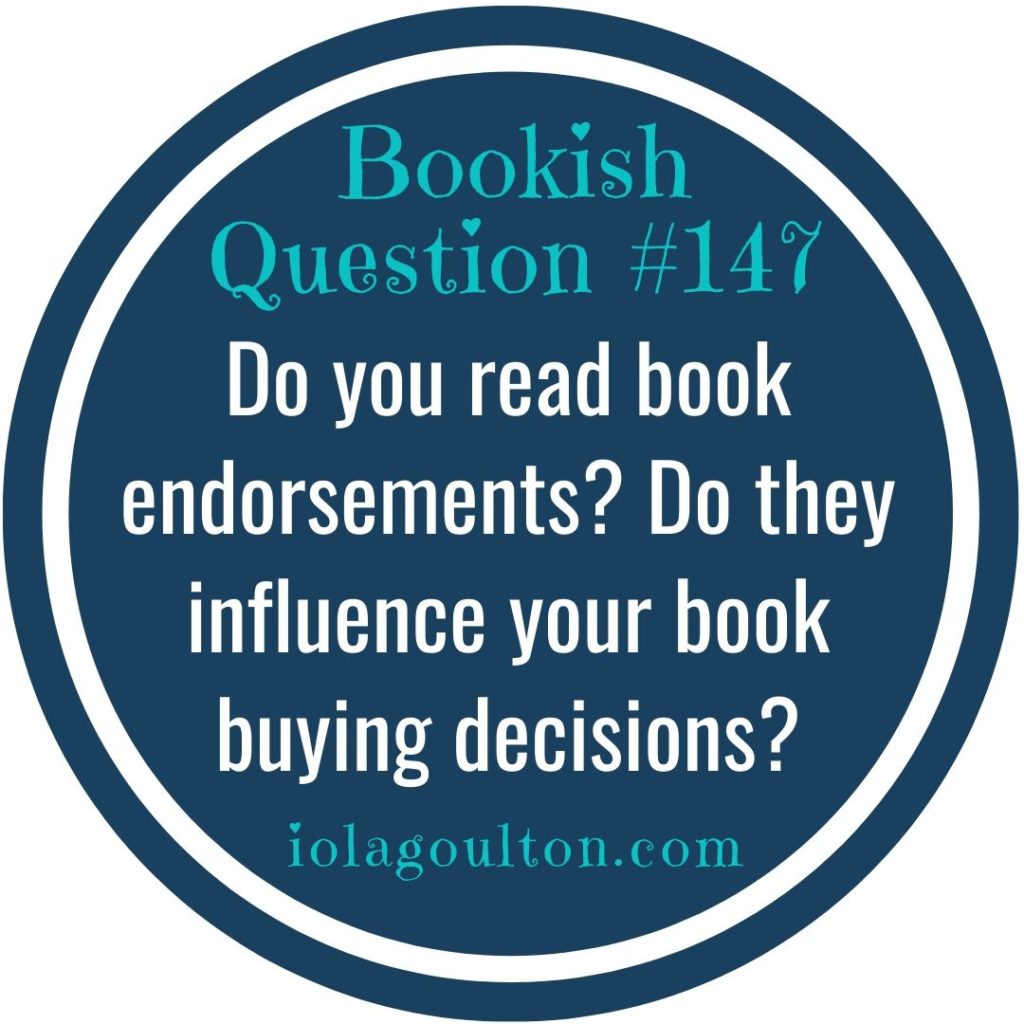No, I don’t read book endorsements, and they don’t influence my book buying decisions.
There is a reason for this. I had a bad experience a few years back when I bought a book based on the endorsement of an author I enjoyed reading. I can’t remember the book or the author (either of them). All I know is that I didn’t enjoy the book, and I was left feeling that the author endorsing the novel had misled me.
Then it happened again, with a different book and different authors.
I learned that some authors are expected to endorse other authors with the same publisher, which lessened the impact of all endorsements in my eyes. I later learned that some authors don’t even read the books they’re asked to endorse, which makes the endorsement the sad waste of a tree.
Fake endorsements are like fake reviews.
If you can’t tell which reviews are genuine and which are fake, you’re going to be wary of all reviews.
I’ve had a similar experience with those authors who advertise books in their newsletters. To me, advertising a book in a newsletter constitutes an endorsement. At first, I thought the authors were recommending books they’d read and enjoyed (and, to be fair, most are). But some are engaging in newsletter swaps to build their email list, and that means featuring books they haven’t read. It seems to me that advertising or endorsing a book you haven’t read could hurt your brand if your readers decide the books you’re endorsing aren’t up to standard.

